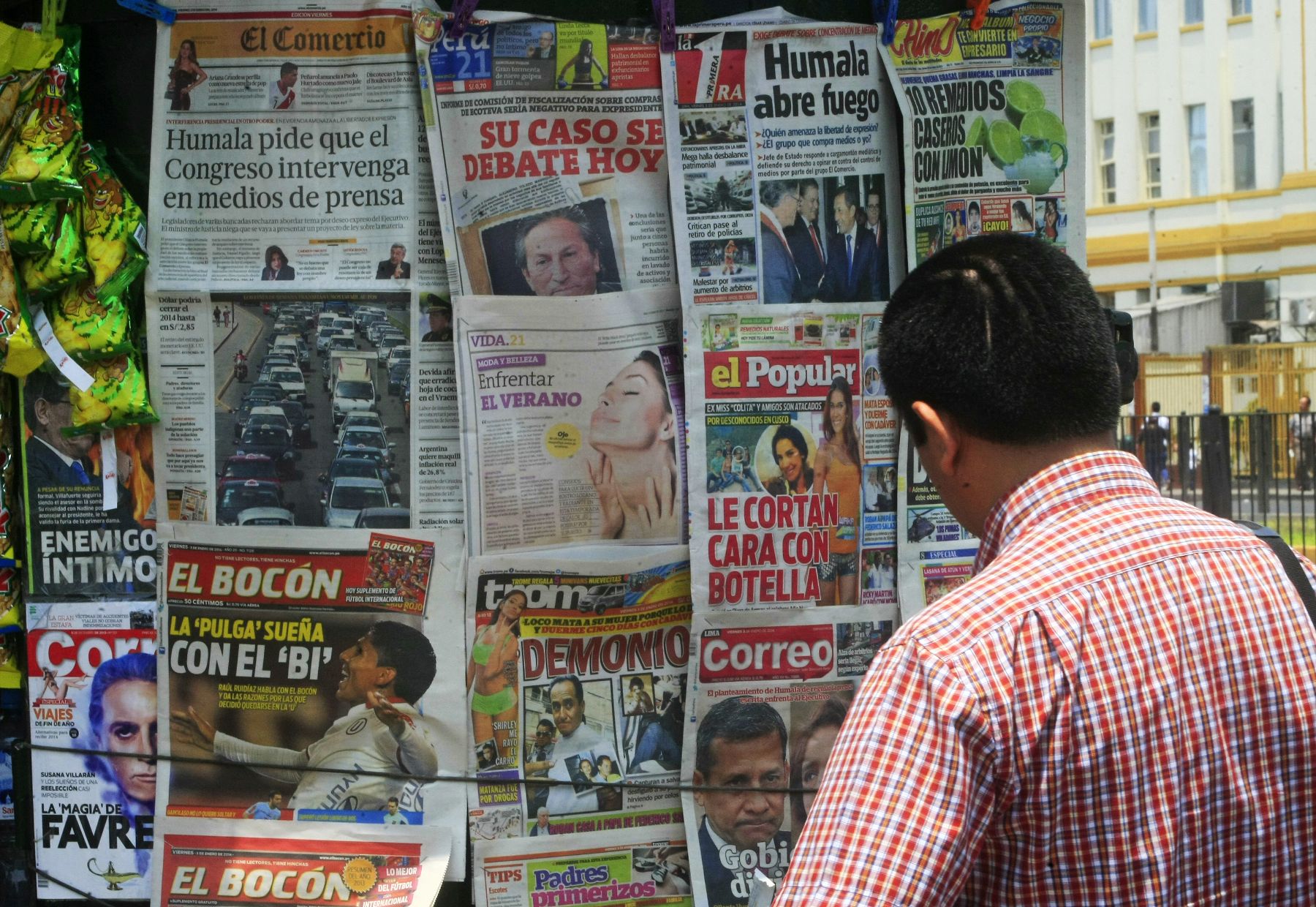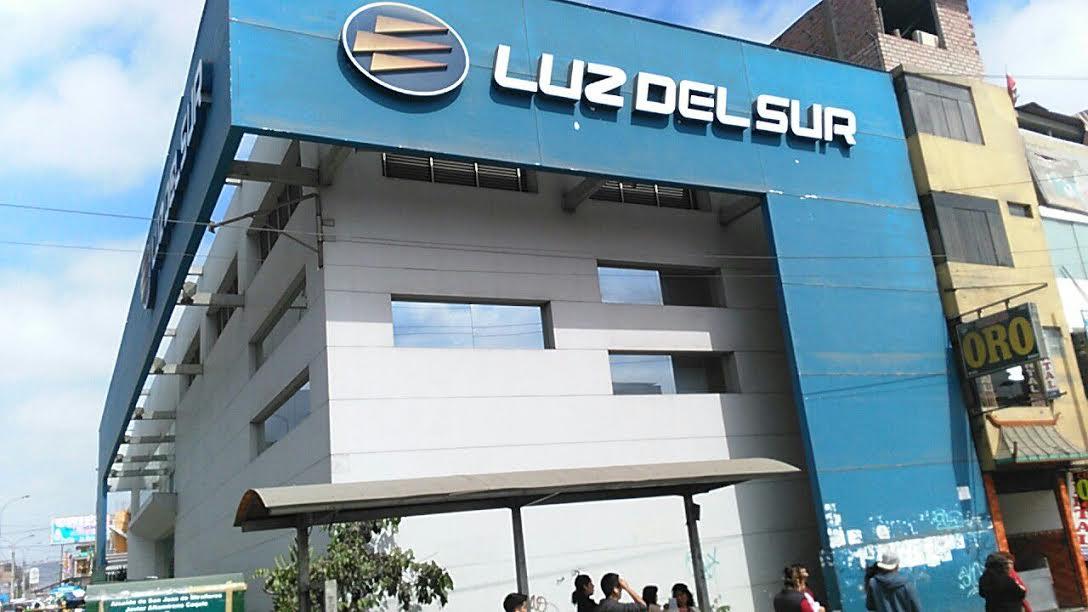
Every time we buy a drug at any BTL, Archangel, Fasa, Point Farma, Mifarma, or Inkarma drugstore, we are actually buying from the same economic group: Intercorp, owned by the richest man in Peru, Carlos Rodriguez Pastor. In January 2018, the conglomerate became the owner of 83% of the pharmacy chains throughout the country upon absorbing its main competitor: the Peruvian Quicorp, who also owned Cifarma and Quilab laboratories, and the distributors Quimica Suiza and Albis.
By buying the shares of this group, Intercorp gained majority control of all the processes of the pharmaceutical business in the country, from production to marketing. At the time, the Ministry of Health, Office of the Ombudsman, and civil society organizations warned that the concentration affected free competition and harmed consumers with price increases. While the latter is not yet the case, the purchase revealed that Peru was one of the few countries in the region with no regulations regarding mergers and acquisitions in the private sector.
The measure was only adopted on 18 November last year by President Martin Vizcarra, through Emergency Decree No. 013, which will come into force in August. However, not every transaction of this type will be audited, but only those meeting two requirements simultaneously: companies involved in the merger with sales of over S/507 million altogether (118 thousand Tax Units a year); and that at least two of the companies to be associated have, each, annual revenues greater than S/77 million (18 thousand Tax Units).

OF URGENCY. After the closing of the Congress, President Martín Vizcarra published the norm against the business merger that the legislators had left pending. He did it through an emergency decree.
Photo: Andina
"The objective of these thresholds [the maximum amounts the company can invoice] is to concentrate efforts on the companies who already have a millionaire presence in the market and whose expansion could restrict free competition and impact on the final consumer," said Javier Coronado, general manager of the National Institute for the Defense of Competition and Protection of Intellectual Property (INDECOPI), who will be responsible for implementing the emergency decree.
Two other stakeholders participating in the ex-ante control of mergers are the Superintendence of Securities Market (SMV), an entity regulating the stock market, and the Superintendency of Banking and Insurance (SBS), who oversees the banking system. The former will provide information on the process and the latter will help to decide the future of a merger involving companies under its supervision.
"IN THIS RANKING WE FIND 124 PRIVATE COMPANIES THAT ARE PART OF 54 POWER GROUPS WITH SIMULTANEOUS INVESTMENTS IN DIFFERENT SECTORS"
OjoPublico -with data collected up to 2018 by Peru Top Publications- was able to identify 1,666 companies from different areas meeting the second requirement set out in the decree ( invoicing not less than S/77 million a year); whereas 266 of these companies recorded annual sales in excess of the first regulated threshold (S/507 million), so if they try to a purchase or merger with any of their competitors they must previously subject to the ex-ante control of the State.
The list of 1,666 companies includes public and private companies operating in a single market sector. However, 124 of these companies are subsidiaries of 54 power groups with simultaneous investments in different sectors such as commerce, mining, banking, energy, cement, hydrocarbons and others.
For example, the first place in this ranking is the largest holding in Peru: Romero Group, controlled by banker Dionisio Romero Paoletti. This economic conglomerate comprises13 companies linked to the food, transportation, fuel, banks and insurance companies business, and their sales levels have caught the attention of public regulations.
Next comes Intercop, property of Carlos Rodríguez Pastor, and his already mentioned financial investments in drugstores, financial companies, laboratories and supermarkets. Then the Breca Group, belonging to the Brescia Cafferata family, in the mining and health sectors.
This list also mentions the Swiss company Glencore and its six mining operations in Lima, Junín and Cuzco; as well as the Chilean conglomerate Falabella with five supermarkets, banks and department stores; and the local mining company Minas Buenaventura, where one of the shareholders is the former president of the National Confederation of Private Business Institutions (CONFIEP), Roque Benavides, and which has five mining projects.
José Carlos Lumbreras, Research and Projects Manager at Peru Top Publications, told OjoPublico that this list includes the companies already concentrating the largest percentage of sales in their respective market, but only when those companies interested in entering into a merger become known, will it be possible to determine if their income, altogether, meets the two legal conditions to be subjected to ex-ante control. The challenge for Indecopi, in his words, will be to determine the way this affects the consumer beyond these figures, since the norm does not specify if the products, services, or the entire line of distribution of a company will be analyzed.

POWER GROUPS. The leading companies in the economic sectors belong to conglomerates that have simultaneous investments in several lines of business.
Photo: OjoPúblico
"This is important because some of these economic groups control the entire line of business, from production to final sale. It would be misleading to supervise the impact a company has in the dairy sector without assessing the control that their partners have in the rest of the productive chain: distribution, packaging, inputs, etc. On the other hand, some companies register in sectors broader than the one they operate in; they register in the textile sector when their main activity is in leather. Is the dominant position measured on a specific service?" Lumbreras wondered.
In this regard, INDECOPI manager expressed that the thresholds are only the first filter to know who will be supervised, since —in a second phase— there will be a documentary and field inspection to determine whether the future transaction will affect the market or not.
“We will review mergers by absorption, purchases of shares or assets that allow the control of a company over another. This regulation is key because concentration distorts free competition, prevents the entry of new players and puts a possible variation of prices at risk. It gives the consumer fewer options to choose from," he added.

REGULATOR. Javier Coronado, general manager of Indecopi, assures that his entity will supervise the documentary and field information of the companies that pass the billing fence.
Photo: Elizabeth Salazar
However, the purpose of the norm is not to restrict all applications for merger, as some of these transactions will be authorized after meeting certain requirements so consumers are not affected. For example, INDECOPI may request one of the companies interested in absorbing another to dispose of any affiliate or subsidiary to reduce their market power.
Both INDECOPI and the Ministry of Economy and Finance (MEF) are preparing the decree regulations detailing this procedure, and they will be ready in May.
Oligopolies are already consolidated
Emergency Decree 013-2019 to control mergers arrives when the health, drinks, food, banking, fishing and even media sectors are concentrated in a few hands. There is not a single company dominating the market, a phenomenon known as monopoly; but there are two, three or four large ones with the largest sales and turnover figures. That is to say, according to the specialists consulted, we have several oligopolies.
For example, the concentration of pharmacy chains started in 2011, when Mifarma bought BTL at almost the same time as its rival, Inkafarma, was purchased by Intercorp. The following year, Mifarma itself absorbed Fasa and then did the same with Arcángel and its distributor, Albis. In 2016, INDECOPI discovered that all of them had agreed on the price increase of 36 drugs and fined them with S/9 million. And by 2018, Mifarma and Inkafarma finally merged.
“Now all these pharmacy chains are one, and they do not need to be entering secret agreements. The merger gives them greater dominance, indeed, but this does not prevent us from supervising them to ensure their prices do not affect the consumer," indicated Coronado, from INDECOPI.

MONOPOLY. The Belgian-Brazilian company AB Inbev became the owner of 95% of the beer market in Peru, after buying from SAB Miller and his firm Backus.
Photo: La República
In the market of gas stations, in 2018, Primax —subsidiary of the Romero Group— bought 94% of the shares of its competitor, Pecsa, operation that positioned it, along with Repsol and the Peruvian State-owned Petroperu, in a triumvirate which owns 65% of the fuel business.
Years before, in 2016 a merger was confirmed between the Belgian-Brazilian AB INBEV and its global competitor: SAB Miller, owner of Backus and Johnston in Peru. With this operation they now control 95% of the local beer market. Since then, local brands such as Cristal, Pilsen, Cusqueña, Arequipa and San Juan became one single portfolio with foreign brands such as Budweiser, Stella Artois and Corona (and Brahma, which then went out of circulation).
"COURT DOES NOT RESOLVE AMPARO PRESENTED IN 2013 BY A GROUP OF JOURNALISTS AGAINST GROUP THE COMMERCE. DEMAND IS BY CONCENTRATION OF MEANS"
In the media sector, El Comercio Group —owned by the Miró Quesada family— purchased 54% of the shares of Empresa Periodística Nacional S.A. (EPENSA), owners of the second largest conglomerate of newspapers, which gave them control of 78% of the newspaper sales market. The transaction was completed in August 2013. Three months later, a group of journalists filed a constitutional complaint in the Judiciary against this group, because the concentration of media violated the plurality and freedom of information of citizens.
Six years later, the Fourth Constitutional Court of the Superior Court of Lima has still not resolved the dispute. The complainants sued the state at the Inter-American Commission on Human Rights (IACHR) for not guaranteeing access to justice; however, in January of this year, the Ministry of Justice responded to the Inter-American body that the reasonable term is not being affected.

CONCENTRATION. El Comercio Group controls 78% of the newspaper sales market since it bought from its main competitor, Epensa.
Photo: Andina.
In 2018, El Comercio had already purchased 36.4% of Prensmart S.A.C. (Ex Epensa) share capital, thus becoming the owner of 100% of the shares of the company that prints and sells Correo, El Bocón and Ojo newspapers.
In addition, last October, INDECOPI started a punitive process in the printing sector, after detecting that Industria Gráfica Cimagraf S.A.C., Metrocolor S.A., Corporación Gráfica Navarrete S.A., Quad/Graphics Perú S.A., as well as El Comercio and its subsidiary Amauta Impresiones Comerciales S.A.C., would have colluded to share print services contracts requested by the public sector. According to the regulatory body, there are documents, statements and e-mails showing that this occurred from January 2009 to July 2016.
Peru Top reports and the companies’ annual reports confirm more oligopolies. One of them is in the dairy products market, where 90% of the supply is in the hands of Gloria, Nestlé and Laive, while the balance is covered by artisanal producers.
The food industry itself is in the hands of two economic groups: Alicorp, a subsidiary of the Romero Group with brands such as Primor, Capri, Alacena, Don Vittorio, Blanca Flor, Casino and others; and Gloria, mentioned before, owned by the Arequipenian brothers Jorge and Vito Rodríguez Rodríguez, which produces juices, jams, canned fish and other products processed under different brands.
Four giants control 74% of the fishing industry: Pesquera Hayduk S.A., Tecnología de Alimentos S.A (Tasa), Pesquera Diamante and Pesquera Exalmar; while 80% of the loans in the banking sector is managed by BCP (controlled by the Romero family), BBVA, Scotiabank and Interbank. In the meantime, the sales of alcoholic and soft drinks is led by Arca Continental-Lindley; and 73% of the marketing of LPG domestic cylinders is in the hands of Zeta Gas, Lima Gas and Solgas, companies that were fined this year by INDECOPI with S/74 million for fixing prices.

FOODS. This economic sector is in the hands of Alicorp, a subsidiary of the Romero Group, and the company Gloria, of the Arequipa brothers Jorge and Vito Rodríguez Rodríguez.
Photocomposition: Jhafet Ruíz
Luz del Sur is subject to antitrust law
Thirteen countries in America already have a law against business concentration, among them, Chile, Brazil, Ecuador, Colombia and Mexico. But until its approval, Peru had only two tools to approach private sector businesses. The first is the Law for the Repression of Anti-Competitive Behavior which punishes price fixing and the abuse of a dominant position; and that in 2016 and 2017 allowed INDECOPI to undo the Kimberly Clark and Protisa illegal agreements to raise the prices of toilet paper, as well as price fixing of drugs promoted by Inkafarma and their current pharmaceutical partners.
The second weapon the State had was the Antitrust and Antioligopoly Law for the Electricity Sector (No. 26876), in force since 1999 and that allowed monitoring 25 mergers in the energy sector: 23 were approved with no observations and two under conditions. The norm will be repealed when the decree against corporate concentration comes into force, but there is a last case being discussed under its legal framework: the sale of the largest power distributor in Peru, Luz del Sur.
In 2019, the request of China Yangzte Power International —from the China Three Gorges Corporation group— to purchase 83.6% of the participation of the U.S. Sempra Energy in Luz del Sur entered INDECOPI’s Commission for the Defense of Free Competition.
INDECOPI is to determine by March whether this operation will have a negative impact on the market, taking into account that the Chinese matrix already participates in the local electricity sector through Central Hidroeléctrica San Gabán III and Empresa de Generación Huallaga S.A, who manages the Chaglla Hydroelectric Plant, purchased by Odebrecht this year after the scandal of the Lava Jato case.

NEW FUSION. Indecopi is evaluating the request of China Yangzte Power International to acquire the 83.6% that the US company Sempra Energy has in Luz del Sur.
Photo: Andina.
Such purchase is the only one under observation of the State. However, a report by Transactional Track Record (TTR), a consulting company, reveals that in 2019 the market for mergers and acquisitions in Peru closed with 135 transactions valued at US$8.162 billion in capital mobilized. Mauricio Olaya, a partner of Muniz Law Firm and expert in Corporate Law, believes that this type of operations will increase in the first half of 2020 because companies will try to act before the norm comes into effect.
“When the economy is booming nobody wants to sell, but a standstill or a period of uncertainty is the best time for foreign groups to assess acquisitions or mergers, because they know that this stage will not last forever and they will be able to gain better profits in the short term. Investment funds mainly are absorbing companies within Peru, but there is a strong inflow of Colombian, , , Mexican, Chilean, Chinese and American capitals," Olaya expressed.
Mauricio Olaya, whose firm also sponsors companies with administrative processes for price fixing, believes that the law passed by Martin Vizcarra implies "use a cannon to kill a butterfly," because the cases at risk of monopoly or concentration are just a few, since the global trend of the markets is to consolidate oligopolies, such as those already operating in the country.
The other two public institutions that will participate in the regulation of mergers also indicate some contingencies to be taken into consideration for application. Liliana Gil, superintendent of legal counsel of the Superintendency of the Securities Market (SMV) explained that the new legislation enables them to issue a technical report on the level of concentration within the businesses under their supervision, as well as its effects.

BANKS. The Superintendency of Banking and Insurance will have voice and vote to decide, together with Indecopi, whether or not a merger in banks, insurers, credit funds and others.
Photo: Andina.
But she advised that this process must ensure the protection of data of the companies involved. “It is appropriate for a level of coordination to exist between state institutions, in order to expedite the approval process (...) The reserve and protection of the data is vital to prevent any abuse of privileged information, a risk that increases if deadlines are not very short," she added.
The other key actor in the process is the Superintendency of Banking and Insurance (SBS). The SBS will have a say in deciding, together with INDECOPI, whether or not a merge is possible in the financial sector: banks, insurance companies, credit unions, etc. We requested an interview with their spokespersons, but they responded in writing. The letter indicated that they requested to participate in the regulation because changes in this market "could lead to losses for customers of the companies involved and have potential negative effects on financial stability."
“Exceptionally, if the occasional bankruptcy of a financial institution puts the stability of the system as a whole at risk, the SBS should have the capacity to dispense with the view of INDECOPI to approve a merger or acquisition. This exception condition is contemplated in the vast majority of countries in the world, mainly those in the OECD [Organization for Economic Cooperation and Development], group to which we aim to belong," they said to OjoPublico.
Comings and goings in the Congress
Emergency Decree No. 013 is the culmination of a regulation that had been discussed in Congress of the Republic since 2016, when the merger in the beer market was confirmed. Two bills were presented, but were not discussed. In 2018, after Intercorp's operation in the pharmaceutical sector, other proposals appeared, reaching as much as 12 legislative projects from different benches and one more of the Executive branch.
In May 2019, the Plenary Meeting of the Congress approved the final decision of the law, but was not sent to the Executive branch for enactment because a dispute arose: the document had been modified hours before its discussion in the Plenary and lifted the bar to determine which companies will be audited. That is to say, the maximum annual sales were changed from 18 to 25 thousand Tax Units, which reduced the number of companies that would be scrutinized.

NEW ANALYSIS. The next Congress must decide whether to maintain or observe the emergency decrees approved by President Vizcarra during the months in which it was not in operation.
Photo: Congreso.
The president of the Commission of Economy at the time, Mercedes Aráoz; the president of the Defense Commission, Elias Rodriguez from APRA; and from the same bench, Jorge del Castillo, who directed the Special Commission that analyzed the text, offered to review this distortion to the law, but with the subsequent closure of the Congress the case was shelved. That is why the Executive, with the legislative powers that arise from extraordinary situations such as these, issued the emergency decree on business concentration.
However, on January 22, one of the Congress working groups, which continued working under the control of the Standing Committee, issued a report recommending the annulment of the decree. The committee under the coordination of the former congressman from Fuerza Popular, Luis Galarreta, found that "in the light of the Political Constitution of Peru, the law would not pass the legality test as it does not correspond to an urgent need that would justify its publication."
Besides Galarreta, his fellow bench member, Rolando Reategui also voted in favor; and against voted the former congressman, Marco Arana Zegarra from Frente Amplio. Another aspect queried in the report is that the decree will not guarantee the confidentiality on the companies involved in the process.
The new Congress is to decide whether the proposal is approved or not. In the meantime, Confiep’s chairperson, Maria Isabel Leon, has already requested a review of all emergency decrees issued in these months by President Vizcarra to avoid possible abuse of power.
Translation: Sandra Capcha
 Tienes reportajes guardados
Tienes reportajes guardados















